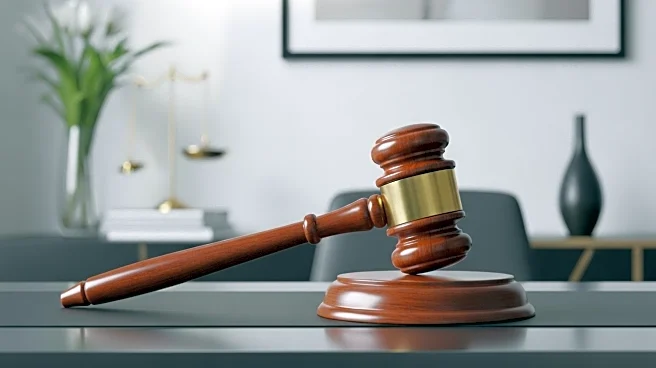What's Happening?
Perkins Coie, a prominent law firm, has terminated an attorney following comments made on social media regarding Charlie Kirk. The firm is currently engaged in legal battles with the Trump administration and aims to avoid any appearance of bias. The decision reflects the firm's stance on maintaining neutrality in ongoing legal proceedings. Additionally, a Pillsbury partner faced criticism from a judge for perceived entitlement, and a law school announced new scholarships in response to federal loan caps.
Why It's Important?
The firing of the attorney by Perkins Coie underscores the challenges law firms face in managing public perceptions and maintaining neutrality in politically charged cases. The incident highlights the impact of social media on professional conduct and the potential consequences for individuals and organizations. The firm's decision may influence how other legal entities handle similar situations and the balance between personal expression and professional responsibilities. The announcement of scholarships by a law school in response to loan caps reflects broader concerns about access to legal education and financial barriers for students.
What's Next?
Perkins Coie's decision may lead to further scrutiny of the firm's practices and its approach to handling politically sensitive cases. The situation could prompt discussions within the legal community about the role of social media in professional conduct and the implications for legal ethics. The law school's response to federal loan caps may encourage other institutions to consider similar measures to support students facing financial challenges.
Beyond the Headlines
The incident raises questions about the ethical responsibilities of law firms in managing public perceptions and the impact of political pressures on legal practices. It also highlights the broader implications of social media on professional conduct and the potential consequences for individuals in high-profile positions. The law school's response to loan caps reflects ongoing concerns about access to education and the financial barriers faced by students pursuing legal careers.








